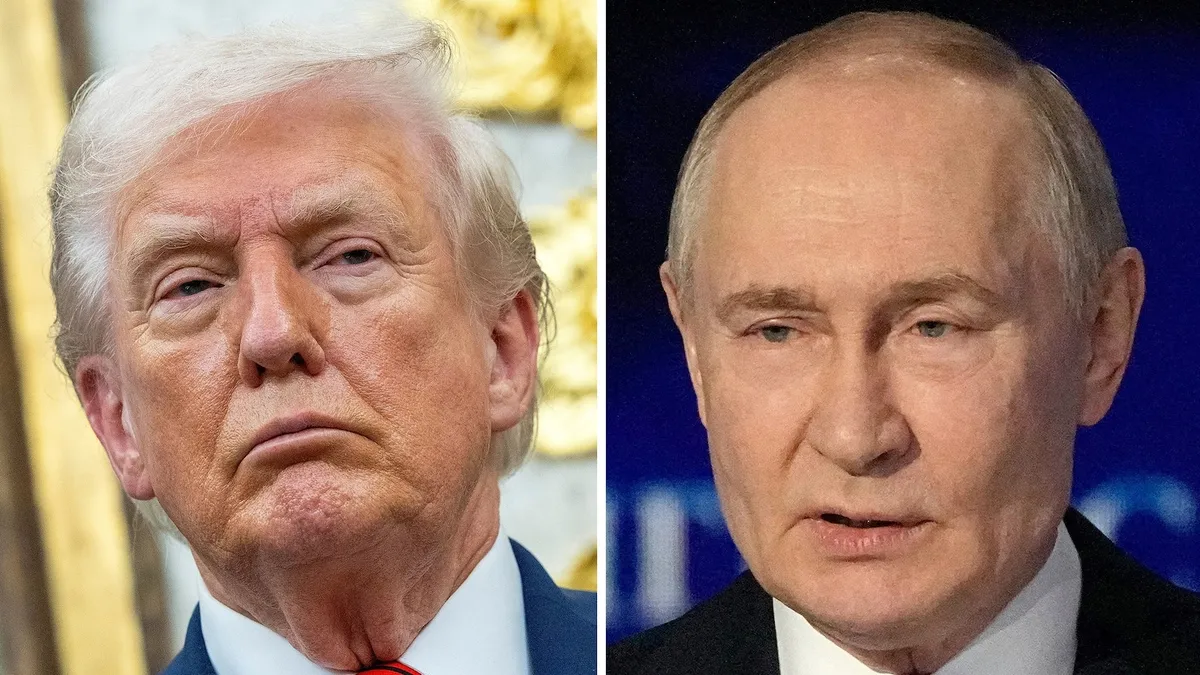
A White House official confirmed on Tuesday that there are currently no plans for a meeting between President Donald Trump and Russian President Vladimir Putin, effectively calling off a much-anticipated summit that was slated to occur in Hungary in the coming weeks. This announcement follows Trump's earlier declaration that he and Putin intended to meet again, with expectations that the discussion would take place within two weeks.
Trump initially indicated that preliminary discussions would take place among senior advisers from both sides before any face-to-face meeting could occur. Secretary of State Marco Rubio and Russian Foreign Minister Sergei Lavrov had a phone call on Monday, which was described as productive. However, the White House clarified that a personal meeting between Rubio and Lavrov is not currently necessary, leading to the conclusion that there are no immediate plans for Trump and Putin to convene.
Earlier on Tuesday, the Kremlin downplayed the possibility of an in-person meeting between the two leaders. A spokesman for Putin stated that there was never a date set for a summit, emphasizing, "You can't postpone what was not scheduled." This statement reflects the ongoing uncertainty surrounding diplomatic engagements between the U.S. and Russia.
During an Oval Office event celebrating Diwali, Trump addressed the meeting's status, stating, "I don't want to have a wasted meeting. I don't want to have a waste of time, so I'll see what happens." When questioned about the change in plans since announcing the Budapest meeting, he remarked, "Well, I didn't say anything. You never know what's going to happen." Trump acknowledged the ongoing complexities related to the war in Ukraine and Russia, suggesting that developments were still unfolding.
Meanwhile, NATO Secretary-General Mark Rutte is set to visit Washington on Wednesday for a meeting with Trump, as confirmed by a NATO news release. This meeting aims to address the ongoing war in Ukraine, ahead of a Coalition of the Willing gathering in London on Friday. This indicates that while the summit with Putin is on hold, discussions around Ukraine's conflict are still very much in focus.
In light of a recent diplomatic achievement in the Middle East, Trump has renewed his commitment to resolving the ongoing Russia-Ukraine conflict, which has persisted for over three and a half years. However, little progress seems to have occurred since his last phone call with Putin and his subsequent meeting with Ukrainian President Volodymyr Zelenskyy at the White House.
Zelenskyy visited Washington to advocate for essential military support, specifically seeking U.S. Tomahawk cruise missiles. Although the Trump administration decided against providing these long-range missiles, Zelenskyy indicated that the issue remains open for future discussions. He described the White House meeting as positive, expressing hope for potential participation in the now-canceled summit between Trump and Putin.
Trump has called for the Russia-Ukraine war to conclude along its existing battle lines, refuting reports suggesting he urged Zelenskyy to surrender the entire Donbas region to Russia. On Monday, he moderated his previous statements, asserting his belief that Ukraine could reclaim all occupied territory, although he remained skeptical. "Well, they could; they could still win it. I never said they would win it," Trump clarified, emphasizing the unpredictable nature of war.
The decision to table a second Trump-Putin summit comes shortly after Russia's top diplomat indicated that the U.S. and Russia remain significantly divided on how to resolve the Ukraine conflict. Lavrov stated, "Now, Washington is saying that we need to stop immediately and not discuss anything further." This highlights the enduring complexities and tensions within U.S.-Russia relations as the two nations navigate the ongoing war.
This summation of events underscores the intricate diplomatic landscape surrounding the Russia-Ukraine war and the challenges faced in U.S.-Russia dialogue. As the situation evolves, the international community remains watchful of any further developments.